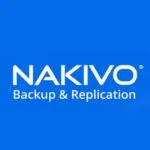Top Software Providers
Welcome to our comprehensive guide to the Top Software Providers, meticulously curated to assist you in finding the perfect partner for your software needs. In today’s rapidly evolving technological landscape, selecting the right software provider is crucial for success. Our curated list showcases companies renowned for their expertise in a wide range of software solutions, from custom development to off-the-shelf products. With a focus on insightful reviews, we empower you to make informed decisions, ensuring that you select a partner distinguished for excellence in both innovation and reliability. Simplify your search and embark on the journey to digital transformation with confidence.

Mcafee Total Protection (McAfee)
-
Features
- Anomaly/Malware Detection
- Threat Response
- Real-Time Monitoring
- Automatic Scans
-
Category Type
Anti-Virus Software
-
Price
$29.99 One Time

Speexx
-
Features
- Learning Management
- Multi-Language
- Blended Learning
- Course Management
- Self-paced Learning
-
Category Type
Language Learning Software
-
Price
$19.95 usage based , one time

LearnLanguages24 (Foreign languages program school)
-
Features
- Learning Management
- Multi-Language
- Blended Learning
- Course Management
- Self-paced Learning
-
Category Type
-
Price
$19.95 usage based , one time

EaseUS Data Recovery Wizard (EaseUS)
-
Features
- Disaster Recovery software
-
Category Type
Data Recovery Software
-
Price
$69.95 One Time

NAKIVO Backup & Replication (NAKIVO)
-
Features
- Backup and Recovery
- Disaster Recovery software
- Data Replication
-
Category Type
Data Recovery Software
-
Price
$99.00 One Time

HoneyBook (HoneyBook Inc.)
-
Features
- Content Generation
- Personalization and Recommendion
-
Category Type
AI SEO Software
-
Price
$36.00 flat rate, per month

ProWritingAid (Orpheus Technology)
-
Features
- Content Generation
- Natural Language Processing
- Personalization and Recommendation
-
Category Type
AI SEO Software
-
Price
$20.00 flat rate, per month

ManageEngine Log360
-
Features
- Whitelisting/Blacklisting
- Endpoint Management
- Vulnerability Scanning
- Real-Time Monitoring
- Alerts/Notifications
- Activity Dashboard
- Risk Analysis
-
Category Type
Internet Security Software
-
Price
Not provided by vendor

LastPass
-
Features
- Real-Time Monitoring
- Alerts/Notifications
- Vulnerability Scanning
- Activity Dashboard
- Data Security
-
Category Type
Internet Security Software
-
Price
$4.00 Per Month

Site24x7 (Zoho Corporation Pvt. Ltd)
-
Features
- API
- Predictive Analytics Software
- Third-Party Integrations
- Multi-Language
- Activity Dashboard
- Reporting/Analytics
-
Category Type
Artificial Intelligence Software
-
Price
$10.00 Per Month
** Buyer's Guide **
- 1. What factors should I consider when choosing a software provider?
- 2. How can I determine if a software provider is reputable and trustworthy?
- 3. What types of software solutions do top providers typically offer?
- 4. Can I request customizations or integrations to fit my unique business requirements?
1.What factors should I consider when choosing a software provider?
When selecting a software provider, consider factors such as their expertise in your industry or niche, the scalability of their solutions, their track record of successful implementations, the level of customer support they offer, their pricing structure, and their ability to customize solutions to meet your specific needs.
Choosing the right software provider is crucial for the success of your project. Here’s a breakdown of key factors to weigh in during your selection process:
Understanding Your Needs:
- Identify Your Requirements: Clearly define the functionalities and features you need from the software. This helps narrow down potential providers and ensures their solutions align with your specific requirements.
Software Expertise:
Industry-Specific Knowledge: Look for a provider with experience in your industry or niche. They’ll understand the unique challenges and workflows of your sector, leading to a more effective software solution.
Scalability and Future Growth: Consider your future growth plans. The software should be scalable to accommodate increasing user traffic, data volume, and potentially new functionalities as your business expands.
Technology Stack: Evaluate the technologies the software is built on. Ensure they align with your existing infrastructure or are future-proof to avoid compatibility issues down the line.
Implementation and Support:
Track Record of Success: Research the provider’s track record. Look for case studies or testimonials from satisfied customers in your industry who have successfully implemented the software.
Implementation Process: Ask about the implementation process. A well-defined process ensures a smooth transition and minimizes disruption to your workflow.
Customer Support: Evaluate the level of customer support offered. Prompt and responsive support is vital for addressing issues and maximizing your return on investment (ROI) from the software.
Cost and Value:
Pricing Structure: Compare pricing models (subscription-based, perpetual licenses) and ongoing costs (maintenance fees, support charges). Ensure the cost aligns with your budget and delivers the value you expect.
Total Cost of Ownership (TCO): Consider not just the software cost, but also implementation fees, training costs, and potential integration expenses to get a holistic view of the total cost of ownership.
Customization and Flexibility:
Customization Options: Evaluate the software’s customizability. Can it be tailored to your specific needs and workflows? A certain level of customization is often necessary for an optimal fit within your business.
Integration Capabilities: Does the software integrate with your existing systems (e.g., CRM, ERP)? Seamless integration streamlines data flow and avoids manual data entry.
Additional Considerations:
Security Features: Assess the software’s security measures. Data security is paramount, so ensure the provider prioritizes robust security practices.
Vendor Reputation: Research the provider’s reputation in the industry. Read online reviews and check for any concerning customer feedback.
By carefully considering these factors, you can make an informed decision when choosing a software provider. The ideal provider will possess the industry expertise, scalability, and implementation approach that aligns with your specific needs, ultimately helping you achieve your business goals through effective software solutions.
2.How can I determine if a software provider is reputable and trustworthy?
Look for a software provider with a proven track record of delivering high-quality solutions and satisfied clients. You can assess their reputation by reading client testimonials and reviews, researching their industry awards or recognitions, and evaluating the longevity of their business in the market.
Determining a software provider’s reputation and trustworthiness is crucial. Here are some methods you can employ to assess their credibility:
Client Testimonials and Reviews:
Customer Reviews: Read online reviews from verified sources to gain insights from existing customers. Look for reviews that mention the provider’s strengths and weaknesses, specifically regarding their product or service, implementation process, and customer support.
Case Studies and Testimonials: Reputable providers often showcase case studies or testimonials on their website or marketing materials. These provide in-depth examples of how they’ve successfully implemented their software for businesses similar to yours.
Industry Recognition: Research if the provider has received any awards or recognitions from industry publications or analyst firms. Awards can indicate a level of quality and innovation within the software industry.
Company Background and Longevity:
Company History: Research the company’s history and background. A longer track record in the software industry often indicates stability and experience in dealing with customer needs and evolving technologies.
Financial Stability: While not always publicly available, if possible, try to gauge the provider’s financial stability. A financially sound company is more likely to be around for the long term and provide ongoing support for your software.
Transparency and Communication:
Clear Communication: Throughout the evaluation process, assess the provider’s communication style. Are they transparent about their product or service limitations? Do they answer your questions directly and thoroughly? Clear communication fosters trust and indicates a provider who is comfortable addressing potential concerns.
References: Request references from existing customers in your industry, if possible. Speaking directly with satisfied customers can provide valuable firsthand insights into the provider’s reliability and customer service.
Additional Considerations:
Industry Reputation: Research the provider’s reputation within your industry. Talk to colleagues or peers who might have experience with the provider or its software. Industry insights can shed light on the provider’s overall standing and real-world experience.
Membership in Professional Associations: Being a member of relevant industry associations or software development communities can indicate a commitment to best practices and staying current with industry trends.
By implementing these strategies, you can gain valuable insights into a software provider’s reputation and trustworthiness. Choosing a provider with a proven track record, positive customer experiences, and a transparent approach will give you peace of mind and increase the likelihood of a successful software implementation that meets your business needs.
3.What types of software solutions do top providers typically offer?
Top software providers offer a wide range of solutions tailored to various industries and business needs. These may include enterprise resource planning (ERP) systems, customer relationship management (CRM) software, project management tools, accounting and finance software, human resources management systems (HRMS), and more.
Top software providers encompass a vast array of solutions catering to diverse business functions and industries. Here’s a breakdown of some of the most common software solutions offered by leading providers:
Core Business Management Software:
Enterprise Resource Planning (ERP): ERP systems integrate various departments (finance, accounting, inventory, etc.) within a company, fostering data flow and streamlining core business processes.
Customer Relationship Management (CRM): CRM software helps manage all aspects of customer interactions, from lead generation and sales pipeline management to customer service and support.
Project Management Tools: These tools assist businesses in planning, organizing, and tracking projects. They often include features like task management, resource allocation, collaboration tools, and progress reporting.
Financial Management Software:
- Accounting and Finance Software: Accounting software automates tasks like bookkeeping, accounts payable/receivable management, and financial reporting. It simplifies financial management and ensures accurate record-keeping.
Human Resource Management Systems (HRMS):
- HR Management Software: HRMS software streamlines HR processes such as payroll management, benefits administration, talent acquisition, and employee performance management.
Specialized Industry Solutions:
In addition to these core solutions, many providers offer software tailored to specific industries. For example, a provider might specialize in:
- Healthcare: Electronic health records (EHR) systems, hospital management software, medical billing software.
- Manufacturing: Manufacturing execution systems (MES), supply chain management software, product lifecycle management (PLM) software.
- Retail: Point-of-sale (POS) systems, inventory management software, e-commerce platform integrations.
Additional Solutions:
Business Intelligence (BI) and Data Analytics: These solutions help businesses collect, analyze, and visualize data to gain insights and make data-driven decisions.
Content Management Systems (CMS): CMS platforms allow businesses to easily create, manage, and publish website content without extensive coding knowledge.
Security and Compliance Software: Software solutions exist to safeguard businesses from cyber threats, ensure data security, and comply with industry regulations.
Choosing the Right Provider:
Remember, the specific solutions offered by a provider will vary. The key is to identify providers with expertise in your industry and a comprehensive suite of solutions that align with your specific business needs and growth objectives.
4.Can I request customizations or integrations to fit my unique business requirements?
Yes, reputable software providers understand that every business has unique needs and are often willing to customize their solutions or integrate with other software platforms to meet those requirements. Be sure to discuss your specific needs with the provider during the evaluation process.
Customization and integration capabilities are hallmarks of a top software provider. Here’s a breakdown of what to expect:
Customization Options:
Configurability: Most software solutions offer a certain degree of configurability. This allows you to tailor settings, workflows, and user interfaces to better suit your specific business processes and preferences.
Custom Development: For more complex requirements, some providers offer custom development services. This involves modifying the software’s core code to create functionalities that perfectly align with your unique needs.
API Access: Many providers offer application programming interfaces (APIs) that allow you to integrate the software with other applications you use. This fosters data exchange and streamlines workflows between different systems.
Understanding Your Needs:
Clear Communication: Clearly communicate your customization and integration requirements during the evaluation process with potential providers. Be specific about the functionalities you need or the integrations you envision.
Provider Expertise: Evaluate the provider’s experience in customization and integration projects. Do they have a team of developers capable of handling your specific needs?
Cost Considerations:
Customization Costs: Customization, especially custom development, often incurs additional costs. Ensure you understand the pricing structure for any customization work before proceeding.
Integration Costs: Integration projects can also involve costs depending on the complexity of the integration and the platforms involved. Discuss these costs upfront with the provider.
The Right Fit:
Not all providers excel at customization. While some offer pre-built solutions with limited customization options, others have a flexible architecture that readily adapts to unique requirements. Choose a provider that demonstrates a willingness and capability to meet your specific needs through customization or integration.
Additional Considerations:
Scalability of Customizations: If you anticipate future growth, ensure any customizations can scale along with your business needs. Discuss this aspect with the provider to ensure a sustainable solution.
Long-Term Support: Customization often requires ongoing support to maintain and update as your business evolves. Choose a provider with a commitment to long-term support for customized solutions.
By effectively communicating your needs, understanding the provider’s customization capabilities, and considering the cost implications, you can leverage customization and integration to ensure the software solution seamlessly integrates with your existing workflows and fulfills your unique business requirements.



